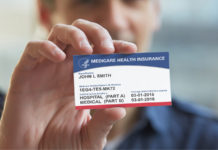If you are someone who prefers to work behind the scenes in an office -or even from home- then medical billing and coding may just be the right degree for you. The prospects for medical billers and programmers have continued to grow in a variety of settings, including hospitals, clinics and skilled nursing facilities just to name a few.
Related Topics (Ads):
Medical coders and billers do not have to interact with patients or offer them any direct care, yet they still play an important role in the health-care industry. According to news and the global reports, the jobs of medical coding specialists have below-average stress levels and above-average flexibility, an attractive combination for many workers. [1]
Another advantage associated with this profession is that medical coding and billing education programs are often quick to complete, and you can even get your education online if you so desire. In addition, you may have the opportunity to work from home in the future or even start your own business. You should keep in mind that although billing and medical coding are closely related and similar in some respects, they are not entirely the same.
But with that said however, just what exactly is a medical coder and biller, and what do they do? Well, medical coders translate the diagnosis and treatment a patient receives into numerical codes based on an official classification system. Insurance providers use these codes to determine coverage and must comply with federal regulations. On the other hand, medical billers take assigned codes and submit claims to insurance providers. Medical billers track both the patient and the insurance provider to ensure accurate billing and timely payment. In some offices, the duties of a biller and a media coder are separate and performed by different people, however, in other places, one person has to perform both duties.
Benefits
By now you should be curious enough to know about the benefits and opportunities this field of work gives. We’ve glossed over a few, but now let’s dive deep into what makes this career so rewarding and what you might except from it from an economical and wage standpoint.
Related Topics (Ads):
No Medical Degree Required
For most people who dream of working in the medical field, the two things that are often going to keep them away is the academical requirements and -even more so- the economical ones. Being a doctor typically isn’t going to be cheap at all. But no need to worry, because you don’t need any such degree to become a medical biller or coder, not to mention that becoming one usually takes no time at all comparatively (around a year or so) so it’s great for those who want to start working entry-level positions quickly.
You Can Often Choose Your Place of Work
For a lot of people, the fact that they may not be able to find a job once they get their degree can be worrying and give them anxiety and stress. With this degree, those worries are minimal. The chances of you finding a job in clinics, nursing homes, hospitals, labs and such are exceedingly high as those health centers are always in need of people with the kind of skills this degree provides, and they’re everywhere. In fact, the BLS, the Bureau of Labor Statistics has estimated that this demand for medical billers and coders is on the rise. [2] So, if you’re one of those who’s really, really stressed about the fact that you may not be able to find a job after college, this might be the career for you.
Related Topics (Ads):
Work and Shift Flexibility
A lot of people (especially the newer generations) would kill for having a good-paying job that would allow them to work from home, and guess what? This job enables you to do just that. Granted, it may very from place of work to place of work, but some do allow their coders and such to work from home some if not all the time, due to the nature of this job being computer-based. If you’re not enticed by the prospect of what we just said, then how about shift flexibility? Whether you’re a morning or late-night kind of person, this job operates every single minute of the day, and thus you have the privilege of choosing the shift where you can perform at your best.
How Much Would You Earn?
The salary earned by a medical biller or coder varies depending on a person’s education, type of employer, place of residence, certifications, specific job function and level of experience. The average salary of health information technicians, which includes specialists in medical billing and coding, ranges from $24,810 to $64,610, according to the Bureau of Labor Statistics (BLS). However, another survey published by the industry organization, the American Academy of Professional Coders (AAPC) points to higher average salaries. According to AAPC data, medical coding and billing salaries averaged $46,001 in 2017. Coding and billing managers had higher payment rates, averaging $64,623.
Medical billing and medical coding hourly rate were a median of $18.83 per hour in 2017, according to the bls. These data are derived primarily from employees working in physician’s offices, nursing homes, hospitals and other health care facilities.
Many people considering a career in medical coding or billing may be interested in starting a home-based business someday. However, if you work for yourself as a contractor who charges an hourly rate, you will be responsible for your own self-employment taxes. You may also have to pay for your own benefits, such as health insurance. Self-employment in this field offers you much more freedom and autonomy, however, in another field to earn a consistent income, you will also need to build your own client base, so it is important to weigh the risks and benefits and have a business plan.
Related Topics (Ads):
[1] http://www.mb-guide.org/medical-billing-and-coding-job.html
[2] https://www.bls.gov/ooh/healthcare/medical-records-and-health-information-technicians.htm#tab-1


























